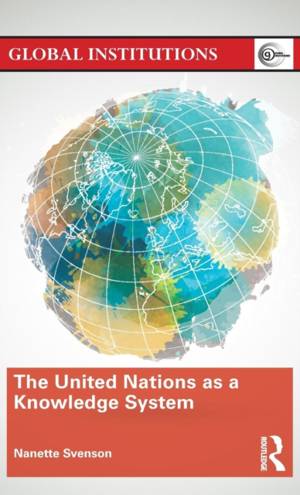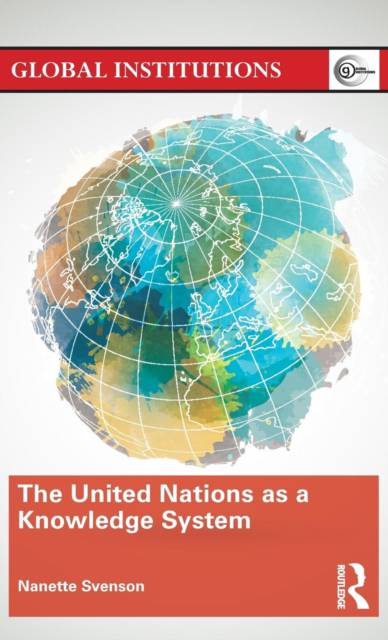
- Retrait gratuit dans votre magasin Club
- 7.000.000 titres dans notre catalogue
- Payer en toute sécurité
- Toujours un magasin près de chez vous
- Retrait gratuit dans votre magasin Club
- 7.000.0000 titres dans notre catalogue
- Payer en toute sécurité
- Toujours un magasin près de chez vous
Description
This book seeks to explore how the UN has generated, warehoused, disseminated, structured, packaged, expanded, transferred and leveraged its vast resources of accumulated information and experience throughout the decades and, particularly, since the start of the 21st century with the introduction of more connective information and communications technology. It examines the overarching objectives that have guided such activity and divides UN knowledge management into three distinct, but often overlapping and intertwining, categories:
- knowledge for social and organizational learning;
- knowledge for norm setting; and
- knowledge for creation of products and services.
Svenson brings together these multiple aspects of UN knowledge management to present a holistic view of how the organization utilizes its global intelligence to educate, advocate and serve member countries' development. Instead of looking at the UN as an international bureaucracy or as a peacekeeping, policymaking, humanitarian or development entity, this work studies the UN as a generator and purveyor of information, learning and experience in all of these areas. This book will be key reading for all students and scholars of international organizations.
Spécifications
Parties prenantes
- Auteur(s) :
- Editeur:
Contenu
- Nombre de pages :
- 286
- Langue:
- Anglais
- Collection :
Caractéristiques
- EAN:
- 9780415735179
- Date de parution :
- 19-11-15
- Format:
- Livre relié
- Format numérique:
- Genaaid
- Dimensions :
- 140 mm x 216 mm
- Poids :
- 480 g

Les avis
Nous publions uniquement les avis qui respectent les conditions requises. Consultez nos conditions pour les avis.






